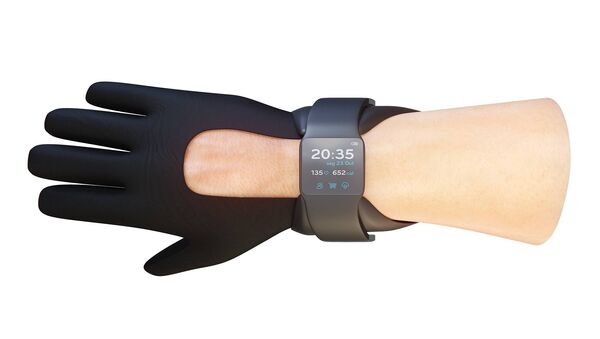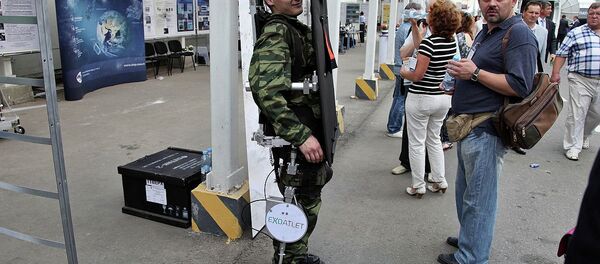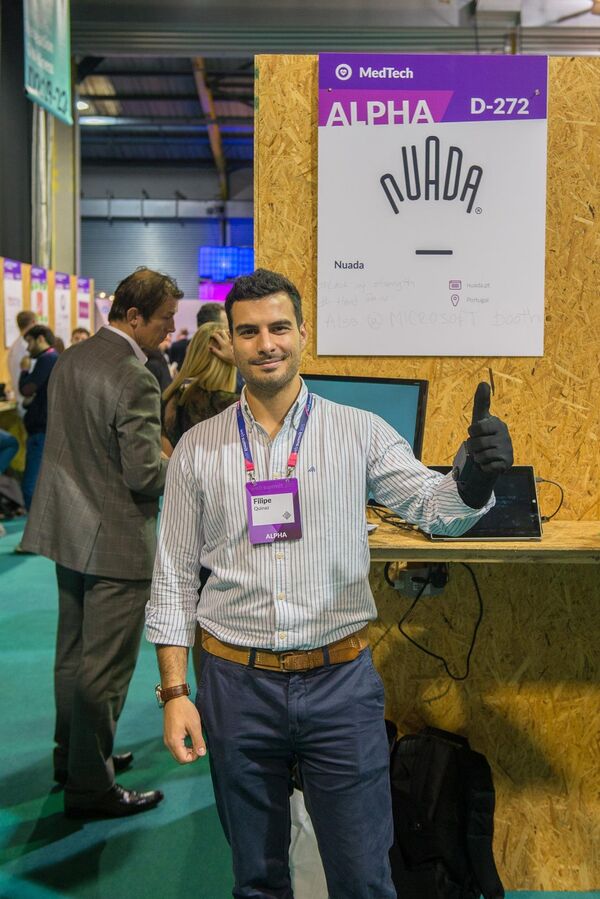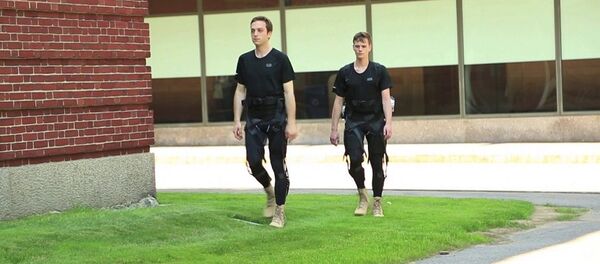“Exohand”
The innovative system to empower the everyday tasks of the weaker hands has created a lot of buzz on Portuguese-language social networking sites.
The “exohand” was designed by Nuada’s founder Filipe Quinaz who has a long history of muscle problems.
In an interview with Sputnik Brazil, he said that once, during a jujitsu training session, he broke his wrist.
“I was in pain even after the bone had completely healed. A month later my hand had gone limp due to lack of exercise. I stopped training and in the next eleven months I couldn’t even open a carton of milk,” Filipe Quinaz said.
Realizing the problems such injuries can cause in one’s everyday life, especially for those who are advanced in age, whose bones are brittle and easy to break, Filipe used his knowledge of engineering and medicine to design a device that would help such people to regain autonomy and reconnect with the world around them.
Serious diseases will no longer mean doom
In Russia the development of exoskeleton technology is going fast and could eventually change our idea of medical rehabilitation and the way our security agencies work.
“These days exoskeletons are primarily used to put disabled people back on their feet,” Albert Yefimov, the head of the robotics center at Skolkovo, the developers of Russia’s first exoskeleton, ExoAtlet, told Sputnik Brazil.
“ExoAtlets come in two versions. One is for people who had suffered a stroke. It starts the process of rehabilitation already on the following day. The other helps victims of traffic accidents and other mishaps to regain their locomotive functions.” Yefimov explained.
“In Arkhangelsk they even had a man wearing our ExoAtlet during his wedding ceremony,” he added.
The ExoAtlet is one of the bestselling exoskeletons around costing almost half of what its US, Israeli and Japanese analogues normally go for.
Are we going to have Terminators too?
Russian engineers are also developing military exoskeletons which someday would completely change our idea of modern warfare and security operations.
“Representatives of various military services, both Portuguese and foreign, including US, have already contacted us and shown interest in our technology, Filipe Quinaz said.
Andrei Yatsun, the director of a robotics laboratory at the Southwestern State University in Kursk, which is working closely with medical institutions, also admitted that his team had close contacts with the military.
“The Defense Ministry shows a great deal of interest in the development of exoskeletons for its own needs, which certainly differ from those of medical rehabilitation. Right now we are discussing their tactical and technical requirements and the future use of such inventions,” Andrei Yatsun said.
Never miss a story again — sign up to our Telegram channel and we'll keep you up to speed!





